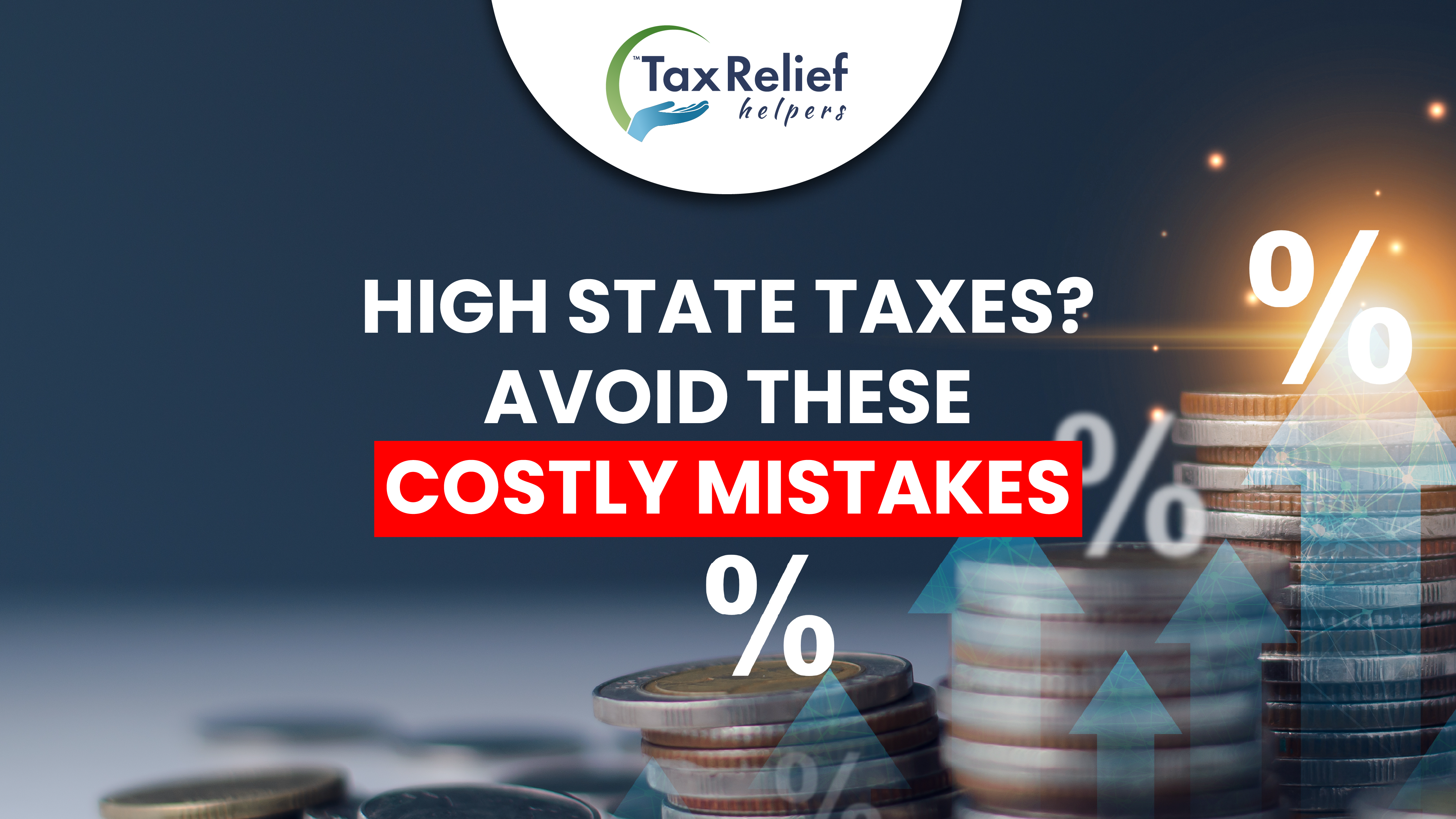Living in states with some of the nation’s highest tax burdens, like California, New York, and New Jersey, requires more than just paying your dues. Without careful planning, residents can easily fall into costly traps. Below, we break down frequent tax missteps and offer practical ways to steer clear of them.
Failing to Track State Residency Properly
Many people move to another state for tax reasons but don’t take the necessary legal and financial steps to update their residency. States with high tax rates often scrutinize taxpayers who claim to have moved. You must prove your intent through things like a new driver’s license, voter registration, or home ownership. Failing to do so could result in double taxation or audits.
Not Taking Advantage of Deductions and Credits
High-tax states often provide state-specific deductions and credits — but many taxpayers overlook them. Examples include the Renter’s Tax Credit in California, education expense deductions in New York, or solar energy credits. Missing these opportunities can significantly increase your tax liability.
Overreporting Income on State Returns
If you earn income in more than one state, it’s crucial to allocate it correctly on your tax returns. A common mistake is reporting all income in your home state when some of it should be attributed to other states, which could lead to overpayment and missed credits for taxes paid elsewhere.
Not Planning for Retirement Tax Impacts
Some high-tax states tax pension income, Social Security, and retirement account withdrawals, while others don’t. Retirees who fail to plan for this can end up with higher-than-expected tax bills. Knowing how your state treats retirement income can help you optimize your withdrawal strategy.
Ignoring Capital Gains Tax Implications
Selling appreciated assets like real estate or stocks can result in a hefty capital gains tax, especially in states that tax gains at the same rate as ordinary income. Without tax-loss harvesting or 1031 exchanges (for real estate), you might end up paying more than necessary.
Poor Recordkeeping for State Tax Audits
High-tax states are more aggressive about audits. If you can’t provide documentation for deductions, business expenses, or proof of residency, you may owe additional taxes and penalties. Keep organized records, including receipts, travel logs, and financial statements.
Staying in a High-Tax State Without Reassessing
Remote workers and retirees sometimes remain in high-tax states out of habit, without evaluating whether a move to a low-tax state could save them money. If you’re no longer tied to a physical office, it might be time to reassess your domicile and long-term financial strategy.
How to Avoid These Mistakes
Avoiding costly tax mistakes in high-tax states requires proactive planning, attention to detail, and sometimes professional guidance. Here’s how you can stay ahead:
- Work with a Tax Professional Familiar with Multi-State Tax Laws: A qualified CPA or tax advisor who specializes in state and local taxation (SALT) can be invaluable, especially if you live, work, or own property in more than one state. These professionals understand the nuances of state residency audits, income allocation, and how different states treat retirement income, capital gains, and deductions. They can help you legally minimize your tax liability while ensuring full compliance.
- Use State-Specific Tax Planning Strategies: Every state has its own tax structure, deductions, and credits. A one-size-fits-all approach doesn’t work. You may be able to lower your state tax bill by utilizing:
- Homestead exemptions for property owners.
- 529 college savings plans that offer state-level tax deductions.
- Energy efficiency credits for home improvements.
- Sales tax holidays or exclusions for large purchases.
Knowing and using these tools can make a major difference in what you owe.
- Review Residency and Income Allocation Yearly: Life changes, such as working remotely, getting married, or buying property in another state, can affect your tax situation. Each year, evaluate whether your residency status and income sourcing are reported correctly. This is especially important if you moved during the year, claimed to have established residency in a different state, or earned income across state lines. Keeping track of your physical presence, financial records, and legal documents will help defend your position in the event of an audit.
Conclusion
Living in a high-tax state doesn’t mean you have to accept a high tax bill without question. Many residents unknowingly overpay or face penalties simply because they’re unaware of common state-specific tax traps. From failing to track residency correctly to missing out on valuable deductions and credits, these mistakes can add up, quickly.
The good news? Most of these errors are preventable with the right knowledge and a proactive approach. Whether you’re a remote worker who recently relocated, a retiree evaluating your state of residence, or a business owner juggling income across state lines, understanding your state’s tax landscape is key. It’s not just about saving money, it’s also about protecting yourself from audits, penalties, and financial surprises.
Written by: Thomas Brooks
Published: November 17, 2025
